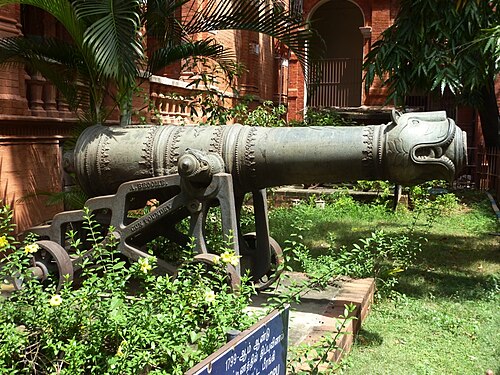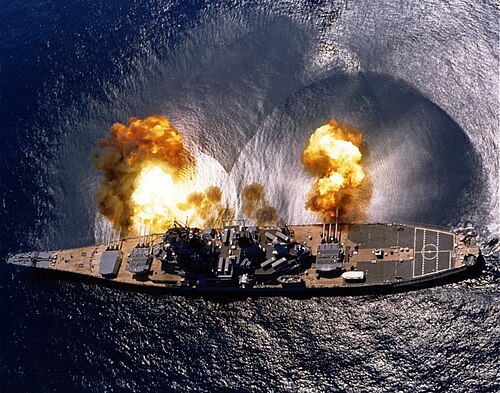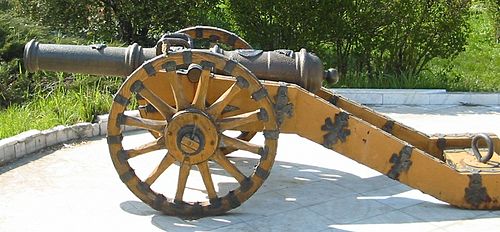Canonnoun
A generally accepted principle; a rule.
Canonnoun
A group of literary works that are generally accepted as representing a field.
Canonnoun
The works of a writer that have been accepted as authentic.
Canonnoun
A eucharistic prayer, particularly the Roman Canon.
Canonnoun
A religious law or body of law decreed by the church.
Canonnoun
A catalogue of saints acknowledged and canonized in the Roman Catholic Church.
Canonnoun
In monasteries, a book containing the rules of a religious order.
Canonnoun
A member of a cathedral chapter; one who possesses a prebend in a cathedral or collegiate church.
Canonnoun
A piece of music in which the same melody is played by different voices, but beginning at different times; a round.
Canonnoun
(Roman law) A rent or stipend payable at some regular time, generally annual, e.g., canon frumentarius
Canonnoun
(fandom) Those sources, especially including literary works, which are considered part of the main continuity regarding a given fictional universe.
Canonnoun
(cookery) A rolled and filleted loin of meat; also called cannon.
Canonnoun
A large size of type formerly used for printing the church canons, standardized as 48-point.
Canonnoun
The part of a bell by which it is suspended; the ear or shank of a bell.
Canonnoun
(billiards) A carom.
Canonnoun
A clergy member serving a cathedral or collegiate church.
Canonnoun
A canon regular, a member of any of several Roman Catholic religious orders.
Canonnoun
A law or rule.
Canonnoun
A law, or rule of doctrine or discipline, enacted by a council and confirmed by the pope or the sovereign; a decision, regulation, code, or constitution made by ecclesiastical authority.
Canonnoun
The collection of books received as genuine Holy Scriptures, called the sacred canon, or general rule of moral and religious duty, given by inspiration; the Bible; also, any one of the canonical Scriptures. See Canonical books, under Canonical, a.
Canonnoun
In monasteries, a book containing the rules of a religious order.
Canonnoun
A catalogue of saints acknowledged and canonized in the Roman Catholic Church.
Canonnoun
A member of a cathedral chapter; a person who possesses a prebend in a cathedral or collegiate church.
Canonnoun
A musical composition in which the voices begin one after another, at regular intervals, successively taking up the same subject. It either winds up with a coda (tailpiece), or, as each voice finishes, commences anew, thus forming a perpetual fugue or round. It is the strictest form of imitation. See Imitation.
Canonnoun
The largest size of type having a specific name; - so called from having been used for printing the canons of the church.
Canonnoun
The part of a bell by which it is suspended; - called also ear and shank.
Canonnoun
See Carom.
Canonnoun
A deep gorge, ravine, or gulch, between high and steep banks, worn by water courses.
Canonnoun
a rule or especially body of rules or principles generally established as valid and fundamental in a field or art or philosophy;
Canonnoun
a priest who is a member of a cathedral chapter
Canonnoun
a ravine formed by a river in an area with little rainfall
Canonnoun
a contrapuntal piece of music in which a melody in one part is imitated exactly in other parts
Canonnoun
a complete list of saints that have been recognized by the Roman Catholic Church
Canonnoun
a collection of books accepted as holy scripture especially the books of the Bible recognized by any Christian church as genuine and inspired
Canonnoun
archaic spelling of canyon
Cannonnoun
A complete assembly, consisting of an artillery tube and a breech mechanism, firing mechanism or base cap, which is a component of a gun, howitzer or mortar. It may include muzzle appendages.
Cannonnoun
Any similar device for shooting material out of a tube.
Cannonnoun
A bone of a horse's leg, between the fetlock joint and the knee or hock.
Cannonnoun
(historical) A large muzzle-loading artillery piece.
Cannonnoun
A carom.
Cannonnoun
The arm of a player that can throw well.
Cannonnoun
(engineering) A hollow cylindrical piece carried by a revolving shaft, on which it may, however, revolve independently.
Cannonnoun
(printing) lang=en (a large size of type)
Cannonnoun
A piece which moves horizontally and vertically like a rook but captures another piece by jumping over a different piece in the line of attack.
Cannonverb
To bombard with cannons.
Cannonverb
To play the carom billiard shot. To strike two balls with the cue ball
Cannonverb
To fire something, especially spherical, rapidly.
Cannonverb
To collide or strike violently, especially so as to glance off or rebound.
Cannonnoun
A great gun; a piece of ordnance or artillery; a firearm for discharging heavy shot with great force.
Cannonnoun
A hollow cylindrical piece carried by a revolving shaft, on which it may, however, revolve independently.
Cannonnoun
A kind of type. See Canon.
Cannonnoun
See Carom.
Cannonverb
To discharge cannon.
Cannonverb
To collide or strike violently, esp. so as to glance off or rebound; to strike and rebound.
Cannonnoun
a large artillery gun that is usually on wheels
Cannonnoun
heavy gun fired from a tank
Cannonnoun
(Middle Ages) a cylindrical piece of armor plate to protect the arm
Cannonnoun
heavy automatic gun fired from an airplane
Cannonnoun
lower part of the leg extending from the hock to the fetlock in hoofed mammals
Cannonnoun
a shot in billiards in which the cue ball contacts one object ball and then the other
Cannonverb
make a cannon
Cannonverb
fire a cannon
Cannonnoun
a large, heavy piece of artillery, typically mounted on wheels, formerly used in warfare
Cannonnoun
a heavy automatic gun that fires shells from an aircraft or tank
Cannonnoun
a stroke in which the cue ball strikes two balls successively.
Cannonnoun
a heavy cylinder or hollow drum that is able to rotate independently on a shaft.
Cannonverb
collide with something forcefully or at an angle
Cannonverb
make a cannon shot.
Cannon
A cannon is a large-caliber gun classified as a type of artillery, and usually launches a projectile using explosive chemical propellant. Gunpowder () was the primary propellant before the invention of smokeless powder during the late 19th century.




































